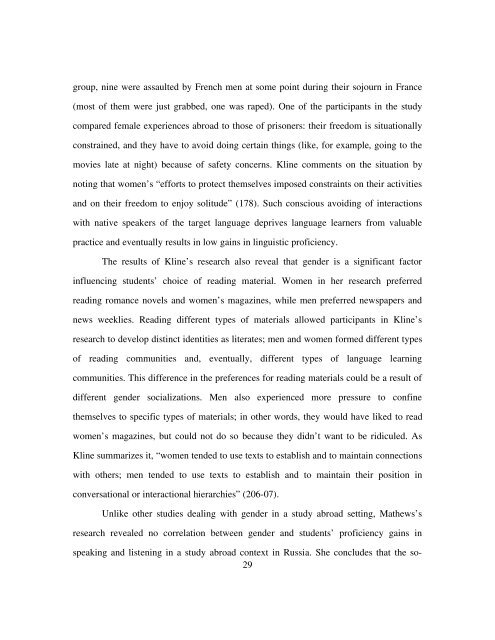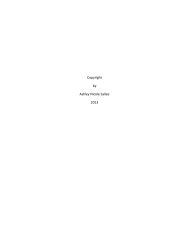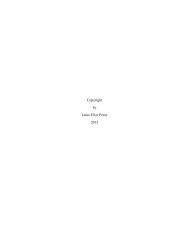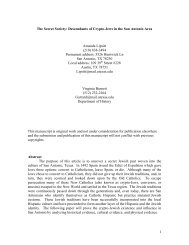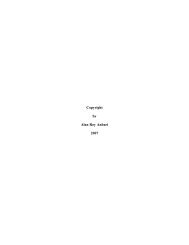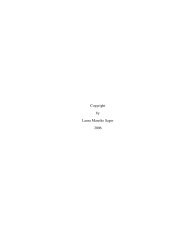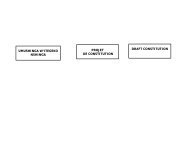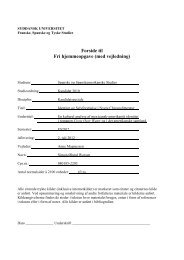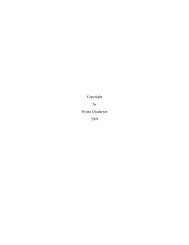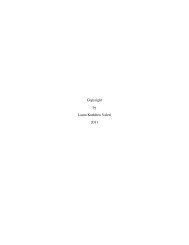Copyright by Tatiana Borisovna Segura 2008 - The University of ...
Copyright by Tatiana Borisovna Segura 2008 - The University of ...
Copyright by Tatiana Borisovna Segura 2008 - The University of ...
You also want an ePaper? Increase the reach of your titles
YUMPU automatically turns print PDFs into web optimized ePapers that Google loves.
group, nine were assaulted <strong>by</strong> French men at some point during their sojourn in France<br />
(most <strong>of</strong> them were just grabbed, one was raped). One <strong>of</strong> the participants in the study<br />
compared female experiences abroad to those <strong>of</strong> prisoners: their freedom is situationally<br />
constrained, and they have to avoid doing certain things (like, for example, going to the<br />
movies late at night) because <strong>of</strong> safety concerns. Kline comments on the situation <strong>by</strong><br />
noting that women’s “efforts to protect themselves imposed constraints on their activities<br />
and on their freedom to enjoy solitude” (178). Such conscious avoiding <strong>of</strong> interactions<br />
with native speakers <strong>of</strong> the target language deprives language learners from valuable<br />
practice and eventually results in low gains in linguistic pr<strong>of</strong>iciency.<br />
<strong>The</strong> results <strong>of</strong> Kline’s research also reveal that gender is a significant factor<br />
influencing students’ choice <strong>of</strong> reading material. Women in her research preferred<br />
reading romance novels and women’s magazines, while men preferred newspapers and<br />
news weeklies. Reading different types <strong>of</strong> materials allowed participants in Kline’s<br />
research to develop distinct identities as literates; men and women formed different types<br />
<strong>of</strong> reading communities and, eventually, different types <strong>of</strong> language learning<br />
communities. This difference in the preferences for reading materials could be a result <strong>of</strong><br />
different gender socializations. Men also experienced more pressure to confine<br />
themselves to specific types <strong>of</strong> materials; in other words, they would have liked to read<br />
women’s magazines, but could not do so because they didn’t want to be ridiculed. As<br />
Kline summarizes it, “women tended to use texts to establish and to maintain connections<br />
with others; men tended to use texts to establish and to maintain their position in<br />
conversational or interactional hierarchies” (206-07).<br />
Unlike other studies dealing with gender in a study abroad setting, Mathews’s<br />
research revealed no correlation between gender and students’ pr<strong>of</strong>iciency gains in<br />
speaking and listening in a study abroad context in Russia. She concludes that the so-<br />
29


